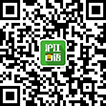新东方名师精讲2010年考研英语真题(大阅读部分)
Text 4
Bankers have been blaming themselves for their troubles in public. Behind the scenes, they have been taking aim at someone else: the accounting standard-setters. Their rules, moan the banks, have forced them to report enormous losses, and it’s just not fair. These rules say they must value some assets at the price a third party would pay, not the price managers and regulators would like them to fetch.
Unfortunately, banks’ lobbying now seems to be working. The details may be unknowable, but the independence of standard-setters, essential to the proper functioning of capital markets, is being compromised. And, unless banks carry toxic assets at prices that attract buyers, reviving the banking system will be difficult.
After a bruising encounter with Congress, America’s Financial Accounting Standards Board (FASB) rushed through rule changes. These gave banks more freedom to use models to value illiquid assets and more flexibility in recognizing losses on long-term assets in their income statement. Bob Herz, the FASB’s chairman, cried out against those who “question our motives.” Yet bank shares rose and the changes enhance what one lobby group politely calls “the use of judgment by management.”
European ministers instantly demanded that the International Accounting Standards Board (IASB) do likewise. The IASB says it does not want to act without overall planning, but the pressure to fold when it completes its reconstruction of rules later this year is strong. Charlie McCreevy, a European commissioner, warned the IASB that it did “not live in a political vacuum” but “in the real world” and that Europe could yet develop different rules.
It was banks that were on the wrong planet, with accounts that vastly overvalued assets. Today they argue that market prices overstate losses, because they largely reflect the temporary illiquidity of markets, not the likely extent of bad debts. The truth will not be known for years. But bank’s shares trade below their book value, suggesting that investors are skeptical. And dead markets partly reflect the paralysis of banks which will not sell assets for fear of booking losses, yet are reluctant to buy all those supposed bargains.
To get the system working again, losses must be recognized and dealt with. America’s new plan to buy up toxic assets will not work unless banks mark assets to levels which buyers find attractive. Successful markets require independent and even combative standard-setters. The FASB and IASB have been exactly that, cleaning up rules on stock options and pensions, for example, against hostility from special interests. But by giving in to critics now they are inviting pressure to make more concessions.
36. Bankers complained that they were forced to
[A] follow unfavorable asset evaluation rules
[B]collect payments from third parties
[C]cooperate with the price managers
[D]reevaluate some of their assets.
选A. 细节题。定位在文章首段后两句话。
37.According to the author , the rule changes of the FASB may result in
[A]the diminishing role of management
[B]the revival of the banking system
[C]the banks’ long-term asset losses
[D]the weakening of its independence
选A. 推理题。解题线索为第三段,句首提到,FASB经过努力使国会通过了一些变革,这些变革赋予了银行更多的权利,因此A“管理作用逐渐消失”符合题意。
38.According to Paragraph 4, McCreevy objects to the IASB’s attempt to
[A]keep away from political influences.
[B]evade the pressure from their peers.
[C]act on their own in rule-setting.
[D]take gradual measures in reform.
选 D. 细节题。解题线索在文章第五段,段首表示“欧洲部长们都希望IASB也进行改革”,同时在段位,“The IASB says it does not want to act without overall planning”,表示IASB不希望草率行事,但是在段位McCreevy表示“Europe could yet develop different rules”,因此McCreevy反对的应该是IASB缓慢的改革步伐,因此D符合文意。
39.The author thinks the banks were “on the wrong planet ”in that they
[A]misinterpreted market price indicators
[B]exaggerated the real value of their assets
[C]neglected the likely existence of bad debts.
[D]denied booking losses in their sale of assets.
选C. 细节题。解题线索第五段,忽视了“the likely extent of bad debts”。
40.The author’s attitude towards standard-setters is one of
[A]satisfaction.
[B]skepticism.
[C]objectiveness
[D]sympathy
选D. 情感态度题。通篇文章都是立足于银行对“standard-setters”的敌意行为,因此表明了其对“standard-setters”的同情。
猜你喜欢
- 出国留学中介前十名介绍 沪江是最好的选择
想要出国留学却没有时间没有精力去办理出国留学的手续,这个时候寻找一个好的出国留学中介就成了最好的办法,好的中介可以让自己更合理的去挑选自己喜欢的国家和学校,而且中介还有出国培训相关的内容,这...
- 日本动漫游戏:学校的圣域
feng社第9作第1弹《彼女のセイイキ(她的圣域)》,而系列的第2弹《妹的圣域》已于2015年08月28日发售,系列第3弹《学校的圣域》在2016年11月发售。
- 日本惊悚恐怖电影《裸体之夜:掠夺狂爱》
《裸体之夜2:掠夺狂爱》是由石井隆执导,竹中直人、佐藤宽子等领衔主演日本惊悚情色电影。该片讲述了主人公红次郎替年轻女孩加藤怜寻找叫“多绘”的救命恩人,结果踏入充满危机的“粉红”漩涡中。
- 秒变单身狗:哪些话不能对恋人说
恋爱初期总是美好而甜蜜的,然而两人长期处下来,就会发现对方的不足之处。生气起来口不择言,结果深深的伤害到两人的感情。这期给大家介绍一些对恋人可不能说的一些话。
- 日本礼仪:你真的会斟酒吗?
走进社会,我们不仅要在工作上努力努力再努力,还要一边学习一些社交礼仪。酒会作为一种常见的社交活动,学会其中的斟酒礼仪也是一门学问。今日,小编给大家整理了日本的斟酒礼仪供大家参考学习。
- 动漫日语脱口而出:痛痛飞走了
看动漫不学日语?那就太可惜啦!花花团小组节目《动漫日语每日一句》,每天教大家一句动漫中的实用台词,让你在看动漫的同时学到地道日语口语。爱动漫,爱生活!一起来练习口语吧!


